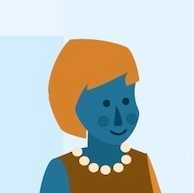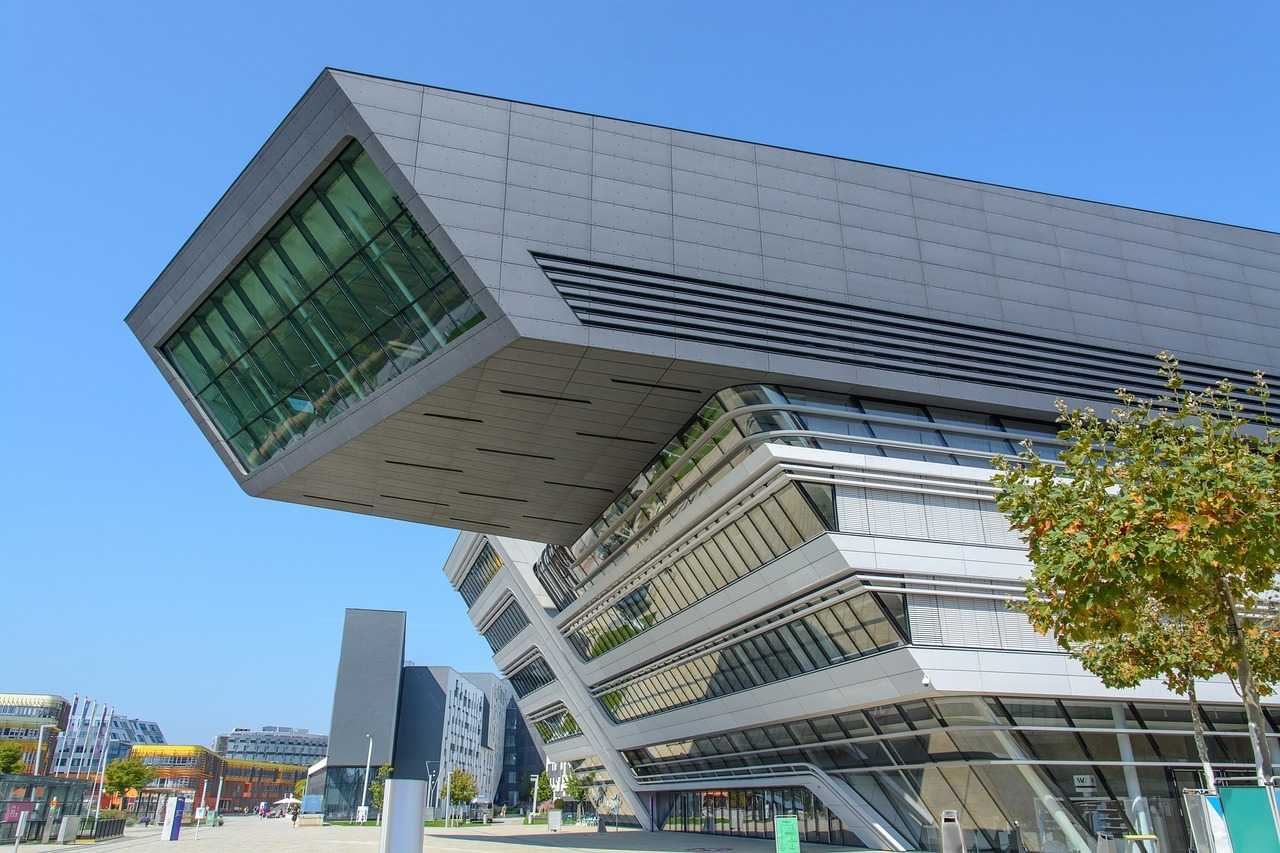The best schools for higher education can be found in various cities around Austria, so no matter where you decide to live, you should have some good educational options within a reasonable distance. Likewise, if you have young children, you can find good kindergarten and primary education options in Austria. In this guide we cover everything from the cost of education to different types of schools and what to choose.
Advertisement
Fernando Achutegui
InterNations events and forums have provided me with an extensive network of business and personal contacts in Vienna.
Jayanti Malhotra
The group of InterNations expats in Vienna is so open and friendly that it was very easy to make friends.
Jump right in:
Advertisement
Why you'll love InterNations in Austria
and countless possibilities for fun and friendship!
Advertisement
Advertisement
The education system in Austria
In Austria chuldren from early age can be taken care of at Kinderkrippens (also known as daycare and childcare) and then they graduate to daycare centers, known as kindergartens. After this, they can move on to primary school (Volksschule), then lower secondary school. At the age of 17, more academic children can seek higher education at universities, while some students have another year at a vocational college, before graduating to a more advanced course based on their future work goals. From 18 years old, an advanced college course can be taken on (It is possible to hold down a job at the same time). Then, at around 23 years old, individuals can take on a PhD at a university.
What is the school year in Austria?
The academic year in Austria generally starts in September and ends in July.
- Christmas and the New Year holiday usually falls between December 24 to January 6
- Winter holiday/Carnival lasts from February 5 to February 10.
- Spring holiday (called “spring break” in some countries) goes from March 24 to April 3
- Summer holiday stretches from June 30 to September 2.
The Grading System in Austrian Schools Follows A 5-Point Grading Scale: The Austrian grading system is opposite to what most expats may expect. In Austria, the higher the number, the worse the score. For example, in this country a student with a 1 is considered excellent, while a 3 still needs improvement.
The Austrian grading scale
Score 1: Very good (sehr gut): the best possible grade.
Score 2: Good (gut): the second level.
Score 3: Satisfactory (befriedigend).
Score 4: Adequate (genügend): this is the lowest possible pass.
Score 5: Unsatisfactory (nicht genügend): a failing grade.
What are the school systems like?
After lower secondary education or grammar school, students either choose the vocational route or a more academic pathway. Those who want to continue with a more practical subject will go to a vocational school (Berufsschule) for three years. You can either do five days a week for a total of four months, or one day a week for around 12 months. After the three years are up, students must take a Lehrabschlussprüfung examination.
On the other hand, pupils who are more academically inclined can go to an institute of higher education (Höhere Schule) for four or five years. At the end of their education there, they must take the matriculation (Matura) exam to get in to university.
Alternatively, academic children who enjoy vocational work or want to move into a related industry, can go to a vocational school (Berufsbildende Höhere Schule) before moving on to university.
School age system
| Age group | School type |
0 to 6 | Kinderkrippen |
3 to 6 | Kindergarten |
6 to 10 | Primary school |
10 to 14 | Junior high school or secondary school (Hauptschule or Cooperative Mittelschule) |
14 to 15 | Polytechnische Schule |
15 to 18 | Students prepare for higher education with vocational training or academic studies |
The main differences between public and private schools
- Cost: To attend a private school, you have to pay, whereas public schools are free.
- Curriculum: Public schools follow the Austrian national curriculum, while some private schools offer alternative programs like IB, Montessori, or international curricula.
- Language: Public schools mainly teach in German, while private schools often offer bilingual or English-language instruction.
- Admissions: Public schools accept students based on the zone they live in, while private schools have selective admissions processes.
- Recognition: Public schools are fully state-recognized, while private schools must be accredited to issue recognized Austrian diplomas.
Only around 8% of schools in Austria are private and many of them follow religious guidelines or they follow a particular educational system, which differs from the mainstream.
Compulsory schooling
Since the 2016/17 school year, all individuals, from 15 years old and older, are required to continue with some form of education or training.
In addition, Austrian employers help out with educating the country’s youngsters. They offer students opportunities to work with them and “learn while doing.”
Religious backgrounds
Many private schools have religious roots, and the Roman Catholic Church in fact manages most private primary and secondary schools in Austria. Roman Catholic schools have a reputation for being more strict than other schools, but they are also known for their excellent academic standards. In terms of universities, private institutions are rare, but have become more common in recent years.


Daycare and kindergarten
Preschool education is compulsory in Austria. Many children attend kindergarten around 3 years old. If a child is 5 by 31 August of a given year It is mandatory to attend kindergarten for a year before starting first grade.
Attending preschool or kindergarten accounts for 20 hours a week of development time and occurs between the months of September and June, except during school holidays. In Austria, preschools do not tend to separate years into junior and senior kindergarten.
In contrast, the educational approach in Austria involves supplementary developmental facilities, such as Kindergruppen or children’s groups, where around five to ten children attend, and parents have the opportunity to offer a high degree of input compared to usual. Childminders and special needs education are also commonplace.
Daycare and kindergarten fees and school costs
It is generally the responsibility of the individual provinces to fund childcare in their area. So, the regional governments spent an additional 252.75 million EUR (279.25 million USD) on childcare.
Part-time daycare, for up to 20 hours a week, is completely free for five-year-olds in Austria. Otherwise, the only cost concerning public kindergartens is for food, and around 60 EUR (66 USD) per month. Private kindergartens cost around 250 EUR (276 USD) per month for full days.
Childcare subsidies in different parts of Austria
- Burgenland: reimbursement up to 45 EUR (50 USD) per month on parents’ fees (kinderkrippen) or up to 90 EUR (100 USD) for crèches.
- Carinthia: Some 66% of the average parental contributions for children up to six years old is subsidised; As of 2020/21 all-day care is free of charge for children up to six years old
- Lower and Upper Austria: part-time daycare is free of charge for children between two, five, and six years old
- Tyrol: part-time daycare is free of charge for children between four and six years old
- Vienna: all day care is free of charge for children under six years old
How to register you child to kindergarten?
It is best to start applying in advance at least 8-9 months before the beginning of September. Before registering to kindergarten your child will need a Kindernummer (child identification number). This can be done in municipal office or magistrate office. In order to register you will need the following papers:
- Parents' passports
- Birth certificate
- Meldezettel registration card
- Child's national insurance number
- Be sure to apply as early as January-February.
To register at a daycare you will need these documents:
- Child's number (Kindersnummer)
- Proof of the registration of the parents and child
- Child's social insurance number (E-Card)
- E-card of the parents or legal guardians
- Vaccination certificate
- Bank statement showing the amount of the parental contribution deducted
- Account number of the Single European Payment Area (SEPA) for charging the aycare fee.
Priority for enrolment at kindergarten:
- Working parents
- If the child's siblings attend the institution
- Parents' employment history at the time of enrolment
- How close the child lives to the daycare center
- If the child is between 4 and 6 years old and has not attended kindergarten before
- Other social and specific criteria
Primary schools
In Austria, students in primary school begin to learn the basics of math and literacy. Some schools incorporate religious education, music, art, and a few hours of gym class. Language studies usually begin in the third year. Through primary schooling, students will have assessments. After the fourth year, students have to pass German, reading and math to study at secondary school.
Stages of primary school in Austria
- Pre-school begins at the age of five-six, the duration is one year, it is free and also mandatory.
-Primary School starts on the 1st of September after the child’s sixth birthday. However, early admission is an option if they child is ready.
-Special Needs Education tutoring by specially-trained teachers. These institutions prepare children for the next stage of education and additional forms of education.
It's also possible to delay starting school by one year if the parents and school director decide if the child is not ready.
How to register to primary school?
Once you decide on a school, you will have to visit the facility in person to register. You can try calling the school in advance to schedule a meeting with the dean. Upon the visit, you will meet the school director, who will decide if your child is ready to attend. To do that, the director will discuss it with you and your child’s kindergarten teachers. Everything related to registration should be done in the fall or winter before the school year starts.
If you choose a public school, your child should be good at German communication. It is also possible that you will be asked to provide medical and psychological certifications for acceptance.
If your child does not speak German you should consider registering for either an international or a public school. Jump to our International Schools section for an overview.
Best primary and secondary schools
Graz
- Carolinum Augusteum, Graz
- Jesuitengymnasium – Taubenkobel, Graz
- MEDIENHAK, Graz
Linz
- Berufsschule Linz
- Diesterwegschule
- Schul- und Gemeindehaus (Kleinmünchen)
Vienna
- Akademisches Gymnasium
- Gymnasium Stubenbastei
- Camillo Sitte Lehranstalt
High schools and secondary schools
The are no school costs involved to attend secondary schools in Austria. Secondary school is separated into lower and upper stages, and it is divided to cater to children with different educational needs and interests. Secondary school is for students aged 10 to 18 and mandatory until the 9th grade.
Lower secondary
Lower secondary school is for students aged 10-14. The subjects are standard; however, in some schools, there is an option for students to explore their own interests. Students can go to a New Secondary School, an Academic Secondary School, or a Special Needs Education school. This is how they differ:
- New Secondary School: at a school like this, individualization for students is a key characteristic. Moreover, all-day education is an option here.
- Academic Secondary School (lower cycle): to attend, you need to show aptitude for academic secondary school.
- Special Needs Education: this type of schooling offers tutoring from specially-trained teachers. The goal of this type of development is to prepare children for the next stage of education and additional forms of education.
Upper secondary
In Austria, the second stage of secondary school is divided into several different layers so as to provide for students with different needs and goals. The different pathways students can take are:
- Integrative Education
- Pre-Vocational Year
- Pre-Vocational School
- Part-Time Vocational School and Apprenticeship
- School for Intermediate Vocational Education
- College for Higher Vocational Education
- Academic Secondary School Upper Cycle


International schools
When comparing schools in Austria, international schools can be very expensive. However, they generally offer excellent teaching and positive environments in which to learn and develop.
There are many British schools or English-speaking schools in Austria, and you can easily find German-speaking schools as German is the local language. There are even French schools or lyc__ée__s, as they are often called.
International schools tend to focus on certain cultural values that you might not see so much in regular public schools. For example, Fundamental aspects of the American International School’s vision are themes such as:
- Nurture;
- Inclusion;
- Challenges;
- and respect.
International schools offer a wide array of subjects to study. Vienna International School (VIS) offers a diverse curriculum, with numerous taught languages, including:
- Swedish,
- Russian,
- Indonesian,
- and Portuguese. At VIS, you can also learn Theatre, Computer Science, and Visual Arts, among other subjects.
International school tuition fees
Fees can range from 5,000 to 40,000 EUR (5,500 to 44,000 USD) per year just for standard Monday to Friday classes. However, if you would like to board your child, costs can reach 60,000 EUR (66,000 USD) or higher.
International school requirements and admission
As most international schools are private and have the freedom to set their own entry requirements, admission expectations will vary depending on the school. Some schools in Austria have different requirements, or “statutes”, that help them divide children into different priority groups, which gives the children either a better or worse chance of being accepted.
Examples of different priority groups schools use are:
- Children of officials working for international organizations in Austria, which are specified by the Austrian Foreign Ministry. Also included are children of members of a diplomatic or consular service, regardless of their nationality.
- Children who are not Austrian citizens but whose parents are employed in the international business sector.
- Other children.
After using these groups to divide applicants, schools may use further criteria to rank prospective students. This includes:
- Children whose parents have lived and worked for at least two years abroad within the last five years while their children attended an English language school.
- Children whose parents can show that they plan to move to a non-German-speaking country in the next two years.
- Children who are not native German speakers, or were born outside of Austria, or whose parents have different nationalities, are given priority.
After that, children whose parents can show for another reason that they have a specific need for their child to have an international education in the English language are given priority.
For “other children,” the above criteria are also used, however, it is only to help the admissions coordinator assess children, and each criterion is not given a different importance. Nevertheless, other children will be given priority if they are:
- Applying to re-enter the school (no more than two years after leaving)
- If they have siblings already at the school.
- After these criteria, the date of the application is also taken into consideration.
Best international schools in Austria
| School | Location | Annual Tuition Fees |
Danube International School (DANUBE) | Vienna | 26,694 EUR (31,100 USD) |
Vienna International School (VIS) | Vienna | 15,896 EUR (18,500 USD) |
Vienna Elementary School (VES) | Vienna | 11,000 to 15,600 EUR (11,599 to 16,450 USD) |
Graz International Bilingual School (GIBS) | Graz | Inquire at school |
Bilingual Primary School (BIPS) | Graz | Inquire at school |
St Gilgen International School (ISGILG) | St Gilgen | 30,850 to 47,200 EUR (32,530 to 49,770 USD) |
COLE International School | Innsbruck | 5,900 EUR (6,221 USD) |
Religion-based schools (Christian and catholic schools)
| School | Location | Annual Tuition Fees |
International Christian School of Vienna | Vienna | 10,400 to 23,088 EUR (12,100 to 26,900USD) |
Mayflower Christian Academy | Vienna | 8,640 to 9,480 EUR (9,110 to 9,996 USD) |
British and American (English language) schools
| School | Location | Annual Tuition Fees |
American International School Salzburg (SALZBU) | Salzburg | 24,000 to 26,000 EUR (25,307 to 27,416 USD) |
American International School Vienna (AISV) | Vienna | 15,300 to 28,000 (17,820-32,600USD) |
Linz International School Auhof | Linz | 600 to 2,400 EUR (632 to 2,530 USD) |


Higher education
Choosing the best universities in Austria is not as simple as looking at university rankings. There is a wide range of higher education centers across the country, and many of them specialize in different subjects. You can find fantastic technology universities, excellent centers for studying medicine, as well as superb locations for studying law.

Best universities for international students in Austria
Vienna
One of the most prestigious education centers in Austria, the University of Vienna has around 200 undergraduate and postgraduate programs that international students can take part in.
Medical University of Graz
As this is one of the best universities in the country to study medicine, it is ideal for expats wanting to become a doctor, nurse, or other health scientist. The university prides itself on thinking of innovative teaching concepts, practical teaching in small groups, and creating new ways of instructing and learning.
Medical University of Vienna
This is one of the most iconic medical universities in the world and has a partnership with the University of Vienna. It has access to over 30 hospitals and clinical centers, where medical students can learn and develop. The only undergraduate degrees on offer are in medicine and dentistry. All other programs are aimed at postgraduates.
Vienna University of Technology
This technology university focuses on research. One of their taglines that they identify with is, “A university for all.”
The university has even signed a ‘diversity strategy’ and plans to promote women and equal opportunities for all.
University of Innsbruck
This institution has an illustrious past and has seen some of its former professors and students earn Nobel prizes. However, students from third countries have to pay around 730 EUR (800 USD) per semester, which is about 360 EUR (400 USD) more than EU and EEA nationals have to pay. Currently, the university’s main research areas are: Alpine Space – Man and Environment, Cultural Encounters – Cultural Conflicts, Molecular Biosciences, Physics, and Scientific Computing.
Graz University of Technology
One of the country’s leading universities for computer science and engineering, it also has strong courses for science and math students. Some of the university’s nine key objectives include: having a high proportion of women and diversity at all levels, strong entrepreneurial thinking, and excellent teaching.
Johannes Kepler University Linz
This university prides itself in having a close-knit campus where students are given more attention than in other institutions. Students from more than 100 countries study here. The university offers degree programs in: Medicine, Natural Sciences, Engineering, Education, Social Sciences, Business, and Law.
The best 5 universities in Austria for all students
- University of Vienna
- Medical University of Vienna
- University of Innsbruck
- Vienna University of Technology
- Medical University of Innsbruck
University tuition fees in Austria
If you are from an EU country and you want to study in Austria, it might not come as a surprise that you will face a more attractive situation regarding university fees in Austria than students from outside of the EU.
How much does it cost to study in Austria for international students
Public universities are generally cheaper than private universities. In fact, for the most part, public universities in Austria are free to attend for students from European Union countries. You just have to pay approximately 22 EUR (25 USD) per semester in student union and student insurance fees.
For non-EU students, the payment situation is different. They have to pay around 1,450 EUR (1,600 USD) per year in tuition fees at public institutions.
There are exceptions to these rules though. For example, the University of Vienna charges everyone tuition fees for certain postgraduate courses, such as Law and International Relations.
Universities of applied sciences (UAS)
It is a different situation at UAS institutions. They individually decide if they will charge tuition fees. At the time of writing, 17 of the 20 UAS in Austria ask EU students to pay around 360 EUR (400 USD) per semester, plus student union and student insurance fees.
Private universities
For private universities, it is a totally different matter regarding tuition fees. EU and non-EU students can expect to pay anything from 1,000 to 40,000 EUR per year (1,100 to 44,000 USD), depending on the institution and program of study.
Tuition free universities in Austria
If you are from an EU or EEA country and are specifically looking for universities that do not demand you pay tuition fees, the following institutions could be perfect for you:
- WU (Vienna University of Economics and Business)
- Johannes Kepler University Linz
- University of Applied Sciences Upper Austria
- FH Joanneum University of Applied Sciences
Average annual tuition fees for the top universities
- University of Vienna: 1,500 to 11,000 EUR (1,655 to 12,100 USD)
- Vienna University of Technology: 1,500 EUR (1,655 USD)
- University of Innsbruck: 1,450 EUR (1,600 USD)
- Graz University of Technology: 1,450 EUR (1,600 USD)
Scholarship and funding opportunities
You can find scholarship opportunities listed at Grants.at. On their site, you can search by criteria such as:
- country
- type of funding
- target group’
- field of study
At OeAD, you can also find an overview of scholarships and grants in the higher education sector. When it comes to scholarships offered by the higher education institutions themselves, some do offer a small number of funding opportunities to international students and researchers; this is rare. You can check if this opportunity is available either through grants.at or directly through the institution you are interested in.
Language schools
Because there is a large expat community in Austria, there are many schools where the main language of instruction is in English or another foreign language.
Learn German
However, you should learn German if you want to really feel at home. For instance, you might find that advancing in a career in Austria, or even getting a job at all, will be more difficult if you do not have a good level of German. Thus, those planning on staying in Austria for a while would do well to learn the language.
Excellent language schools
- Innes Institute, Vienna
- ActiLingua Academy, Vienna
- InLingua, Salzburg
- Sprachenzentrum Universität, Innsbruck
- Universität Klagenfurt, Carinthia
- Deutsch in Österreich, Carinthia
- Sprachinstitut UNA e.U, Linz
Language school fees
Expect language classes to cost at least 250 EUR (276 USD) for 25 hours over approximately 11 weeks and the cost starts at around 2,300 EUR (2,680 USD) per year, with many programs up to 4,000–8,000 EUR (4,660-9,320 USD).
Advertisement
Our Global Partners
Communities in Austria
Like-Minded Expatriates in Austria
Austria Guide Topics
Advertisement





